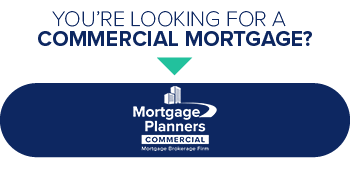
Demystifying the Reverse Mortgage Program in Canada/Quebec: A Financial Alternative for Seniors
In the Canadian financial landscape, the reverse mortgage emerges as an intriguing option for seniors looking to enhance their quality of life while remaining in their homes. Also known as a "home equity conversion mortgage," this program offers an innovative solution for those who have built up equity in their home and wish to leverage it without having to sell or move. Let's take an in-depth look at this fascinating concept and see how it manifests in Canada, particularly in Quebec.
Understanding Reverse Mortgage: What Is It?
A reverse mortgage is a financial program designed for homeowners aged 55 and over, allowing them to convert a portion of their home equity into cash without having to sell their home or leave it. Unlike a traditional mortgage where the borrower makes monthly payments to the lender, with a reverse mortgage, the lender disburses funds to the borrower.
The amount of the reverse mortgage depends on various factors, including the home's value, the borrower's age, and prevailing interest rates. Funds can be received as a lump sum, regular payments, or a line of credit, providing financial flexibility to borrowers.
How Does It Work in Canada/Quebec?
In Canada, the reverse mortgage is increasingly offered as a financing option to seniors, with specific rules and regulations that vary by province. In Quebec, for example, the reverse mortgage is governed by the Quebec Housing and Mortgage Corporation Act (SHQ), which establishes guidelines for its use.
To be eligible for a reverse mortgage in Quebec, you must be a homeowner and be at least 55 years old. The amount you can borrow will depend on your home's value and your age. Generally, the older you are, the more you can borrow.
Repayment of the reverse mortgage typically occurs when the last homeowner passes away, sells the home, or moves into long-term care. At that time, the balance of the mortgage, including the initial principal plus accrued interest, is repaid from the proceeds of the home sale. If the mortgage balance exceeds the sale proceeds, mortgage insurance will cover the difference.
Benefits and Considerations
The reverse mortgage offers several benefits to seniors looking to maximize their retirement and maintain their standard of living. Here are some potential advantages:
- Liquidity: Allows homeowners to access their home equity as liquid funds.
- No Monthly Payments Required: Unlike a traditional mortgage, no monthly payments are required as long as the borrower occupies the home.
- Option to Stay at Home: Enables seniors to remain in their home while benefiting from their home's value.
However, it's crucial to also consider the disadvantages and limitations of the reverse mortgage. For example, upfront fees and accrued interest can reduce the remaining equity in the home and affect the inheritance left to beneficiaries. Additionally, the program may not be suitable for everyone and requires thorough assessment of individual financial needs.
Conclusion
The reverse mortgage represents an interesting option for seniors in Canada and Quebec, offering the opportunity to leverage their home's value while staying in their homes. However, as with any significant financial decision, it's essential to thoroughly understand the ins and outs of the program, as well as its long-term implications. By consulting with a qualified financial advisor and carefully examining all available options, seniors can make informed decisions to support their long-term financial security and well-being.


